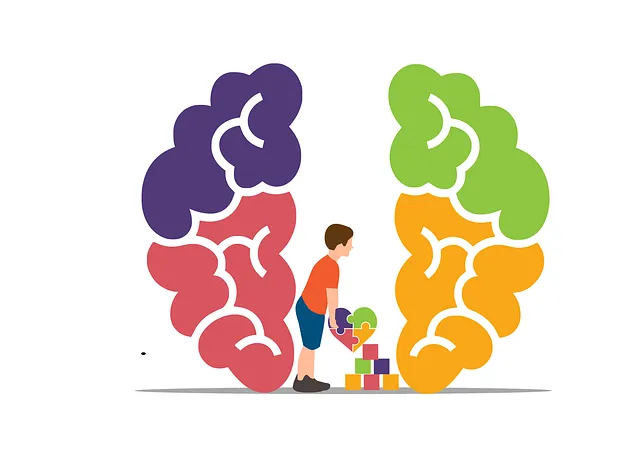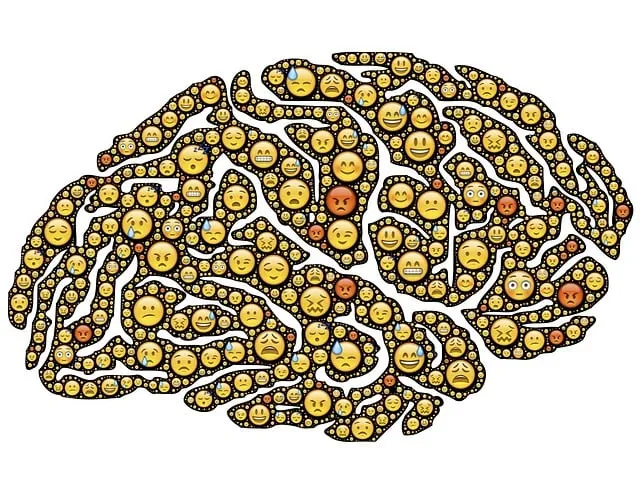Lakewood Kaiser Permanente leads in culturally sensitive mental healthcare by recognizing diverse cultural approaches to mental well-being. They offer tailored services, train staff extensively, and foster inclusive practices like mental wellness coaching. This approach improves patient outcomes, boosts engagement, reduces stigma, and strengthens the therapeutic bond. Continuous education through initiatives like podcasts and workshops equips professionals to address unique challenges across various demographics, elevating the quality of mental health services.
Cultural sensitivity is a cornerstone of effective mental healthcare, shaping treatment plans and outcomes. This article explores the intricate relationship between cultural diversity and mental wellness, highlighting key strategies employed by leaders in the field, such as Lakewood Kaiser Permanente’s successful approach to cultural competence.
We delve into evidence-based communication techniques for diverse patient populations, emphasize the role of continuous education for mental health professionals, and discuss how these practices contribute to improved treatment outcomes, mirroring the exceptional standards set by healthcare giants like Lakewood Kaiser Permanente mental health services.
- Understanding Cultural Diversity in Mental Healthcare
- The Impact of Cultural Sensitivity on Treatment Outcomes
- Lakewood Kaiser Permanente's Approach to Cultural Competence
- Effective Communication Strategies for Diverse Patients
- Continuous Education and Training for Mental Health Professionals
Understanding Cultural Diversity in Mental Healthcare

In today’s diverse society, mental healthcare providers must embrace cultural sensitivity to offer effective services tailored to each patient’s unique needs. Understanding and appreciating cultural diversity means recognizing that individuals from various ethnic, racial, and socioeconomic backgrounds may approach mental health differently. For instance, some cultures prioritize collective family support over individual therapy, while others may have specific spiritual practices for healing. At Lakewood Kaiser Permanente, the mental health services number reflects their commitment to diversity, offering a range of options to cater to these varied needs. This includes incorporating culturally competent therapists who can provide care that respects and embraces each patient’s heritage.
Mental Health Education Programs Design should be inclusive and sensitive to different cultural contexts. By integrating self-care practices and Mind Over Matter principles, healthcare providers can empower individuals with knowledge and tools for their mental well-being while considering cultural nuances. This holistic approach ensures that patients feel understood, respected, and supported throughout their journey towards recovery, fostering a more inclusive environment within the mental healthcare sector.
The Impact of Cultural Sensitivity on Treatment Outcomes

Cultural sensitivity plays a pivotal role in shaping the effectiveness of mental healthcare practices. When healthcare providers are attuned to their patients’ cultural backgrounds, it fosters trust and creates a safe space for open communication. This is especially crucial when considering the diverse patient population, including those accessing services through organizations like Lakewood Kaiser Permanente. Understanding cultural nuances enables therapists to adapt their approaches, ensuring that treatments align with clients’ beliefs, values, and traditional healing methods.
This sensitivity significantly impacts treatment outcomes by addressing not just the presenting symptoms but also the underlying social and cultural factors contributing to mental health issues. For instance, incorporating culturally relevant stress management techniques and emotional well-being promotion strategies can enhance patient engagement and satisfaction. Moreover, it can aid in preventing burnout among healthcare providers who are better equipped to navigate complex cultural dynamics, ultimately improving the overall quality of care provided by Lakewood Kaiser Permanente mental health services numbers.
Lakewood Kaiser Permanente's Approach to Cultural Competence

Lakewood Kaiser Permanente has taken significant strides in enhancing cultural sensitivity within its mental health services, recognizing the profound impact that cultural competence can have on patient outcomes. The organization prioritizes understanding and respecting diverse cultural backgrounds, beliefs, and values, ensuring that care is tailored to meet individual needs. This approach is underpinned by extensive training for healthcare professionals, fostering an environment where they can competently address the unique challenges faced by patients from various ethnic, racial, and social groups.
Through their commitment to cultural competence, Lakewood Kaiser Permanente aims to boost confidence among minority and marginalized communities, who often face barriers when seeking mental health services. By implementing Mental Illness Stigma Reduction Efforts, the organization strives to create a safe and inclusive space where individuals can openly discuss their emotional regulation challenges without fear of judgment. This holistic approach not only improves access to quality care but also fosters trust between patients and healthcare providers.
Effective Communication Strategies for Diverse Patients

Effective communication is a cornerstone of providing culturally sensitive mental healthcare, especially when serving a diverse patient population like that found at Lakewood Kaiser Permanente’s mental health services number. Healthcare providers must adopt strategies that bridge cultural gaps and foster trust. This involves learning about patients’ backgrounds, beliefs, and experiences to tailor care appropriately. For instance, understanding a patient’s cultural context can help in recognizing and addressing specific forms of trauma, which is crucial for those seeking Trauma Support Services.
Mental wellness coaching programs developed with cultural sensitivity in mind can empower individuals to build resilience. By incorporating strategies that resonate with their unique backgrounds, patients are more likely to engage in their care journey. This personalized approach not only enhances the effectiveness of treatment but also strengthens the therapeutic alliance. Effective communication thus becomes a tool for creating inclusive spaces where mental health services meet the diverse needs of all individuals.
Continuous Education and Training for Mental Health Professionals

Continuous education and training are vital components for fostering cultural sensitivity within mental healthcare practices, especially considering the diverse populations seeking services at institutions like Lakewood Kaiser Permanente Mental Health Services. This ongoing learning ensures that mental health professionals remain updated on best practices when assisting individuals from various ethnic, cultural, and socioeconomic backgrounds.
The Mental Wellness Podcast Series Production, for instance, can offer valuable insights into specific communities’ unique challenges and strengths related to mental health. Additionally, promoting Mental Health Awareness through workshops, seminars, and discussions enables professionals to develop culturally competent skills. By embracing Mind Over Matter Principles, healthcare providers can create inclusive environments, enhancing patient care and outcomes while respecting individual differences.
Cultural sensitivity is a cornerstone of effective mental healthcare, significantly influencing treatment outcomes. As highlighted by Lakewood Kaiser Permanente’s commitment to cultural competence, organizations like theirs play a vital role in fostering inclusive environments. By implementing strategies such as continuous education and diverse communication techniques, mental health professionals can navigate the complex tapestry of patient backgrounds, ensuring every individual receives personalized care. The approach shown by Lakewood Kaiser Permanente, with its number of mental health services continuously improving, underscores the importance of cultural sensitivity in enhancing access to quality healthcare for all.






